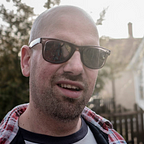Urinal Deodorizer Screens, Resilience and Healing
I noticed something this past Thursday. The urinal cakes in the men’s room of Volunteers of America (VOA) High School are the same exact urinal cakes as those in the men’s room off the waiting room in Stillwater Prison. Same shape. Same color. Same smell when you pee on them.
I’m also noticing there is a difference between resilience and healing.
I’m noticing this after a conversation with Wendy Smith, Director of the VOA High School. I was speaking with her about how my first few weeks of clinical work* have been going. I told her stories from my interactions with students, and one in particular who I had sat with earlier in the week. Hearing some of this person’s past (and present) and seeing how committed the person was to make this “last chance” work, I was simultaneously heart-broken and amazed by the person’s resilience through intense suffering. Wendy agreed that there are some really resilient kids at VOA high school, but then she added that resilience doesn’t mean that the pain has been processed or overcome.
In recent years, I’ve noticed resilience being lifted up as this really powerful, admirable trait. And, certainly, it is. But this bit of wisdom from Wendy has me realizing how resilience is not the ideal. Resilience seems to be about surviving the recurrence of difficult circumstances or oppressions. Healing on the other hand, moves beyond survival toward restoration and thriving. Healing is about transformation and empowerment.
Richard Rohr says, “Pain that isn’t transformed will be transmitted.” Resilience is admirable, but at some point doesn’t it becomes the sign of the society/culture/community’s lack of responsibility in caring for one another? Shouldn’t healing and transformation be our aim?
I don’t want to see resilience on these kids’ faces. I want to see healing.
When I look in the mirror, I don’t want to see resilience. I want to see healing.
When I look at the earth, I don’t want to see resilience. I want to see healing.
Wendy mentioned in another conversation that she knows there are former students who are now inmates at Stillwater. She’s seen those same smiling and resilient faces in the high school halls flash across the 10 o’ clock news via mug shots and sad stories. Pain that isn’t transformed will be transmitted…
How do we stop these cycles of violence, exploitation and suffering — the pain we’re all caught up in transmitting? How do we heal? How is pain transformed?
I’m noticing that healing begins with listening. Before education and prison reform, before advocacy and legislation, before diagnoses and medications, healing begins with the simple recognition that I am/you are a human being — one inherently worthy of experiencing life, love, safety, and belonging. Healing begins with the recognition that the pain, suffering, and fear I am/you are experiencing is real. Listening — not advice-giving or casting blame — listening with no agenda other than simply listening — is this profound act of affirming one’s life or personhood. It’s a relational act that begins to move us beyond isolation into community. And listening community is a place of possibility — even transformation.
I hope none of the smiling resilient faces I’m coming to know in VOA’s halls will ever notice the urinal cakes at the prison. I hope my children and partner and the people in my life won’t be the recipients of my untransformed pain. I hope the same for you and the people in your life.
We can do better than resilience. We can heal.
Begin now. Make room to listen to self, earth and other.
*I’m currently participating in a Social Justice Clinical Pastoral Education (CPE) program designed to help develop my capacities for spiritual care. It’s a mix of 300 hours of clinical practice in community-based settings and 100 hours of group processing with other spiritual care providers. My clinical hours are shared between the contract-alternative VOA High School and VOA’s Omegon Youth Residential Treatment Facility. My group processing hours take place within maximum-security prison in Stillwater. Our peer group is evenly mixed with four pastors from outside the prison and four inmates who lead and serve within.
